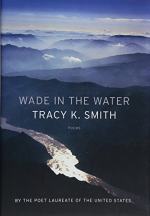|
This section contains 679 words (approx. 2 pages at 400 words per page) |

|
Nature
In the collection, scenes set in nature give the poems’ speakers chances to confront concepts larger than themselves. In “Driving to Ottawa,” the speaker sees in the landscape examples of history’s continuation into the present. In “Watershed,” nature suffers the effects of capitalist greed but also provides an image of hope for the future. In “Hill Country,” even God is so overwhelmed by the grandeur of nature that he can nearly believe in a force greater than himself. Even in the landscape painting section of “Eternity,” the speaker interacts with nature via art and finds this sense of heightened meaning: “What is the soul allowed to keep? . . . I have knelt just here, torn apart by loss” (59). Nature provides a sense of scale and interconnectedness between people and things.
The Nineteenth Century
Found poems based on nineteenth-century primary sources allow the poet to interrogate history without the obvious...
|
This section contains 679 words (approx. 2 pages at 400 words per page) |

|




